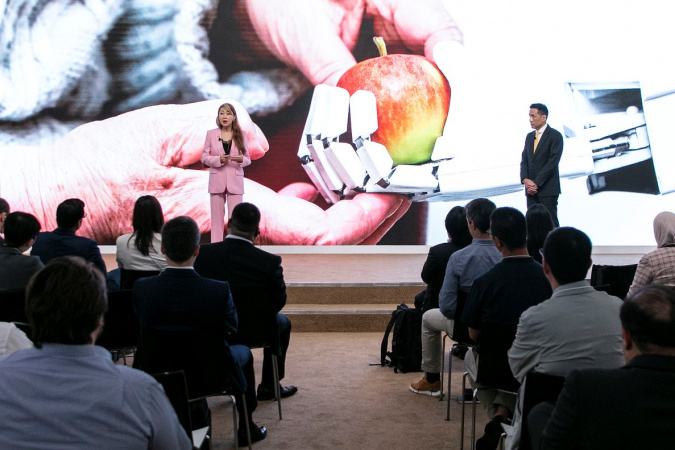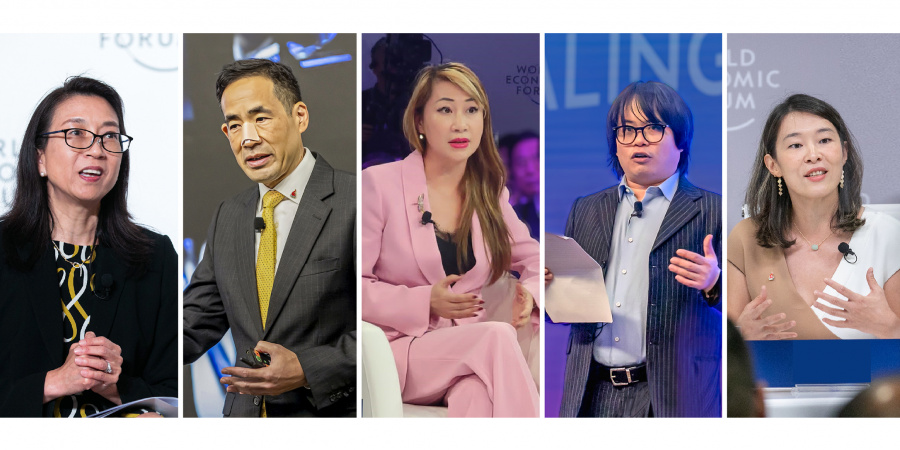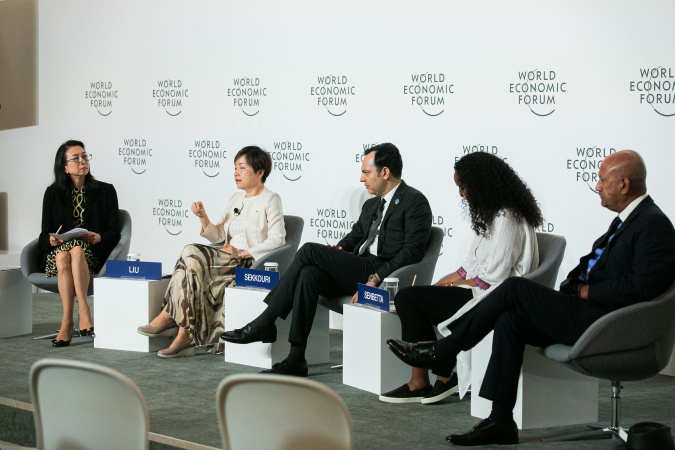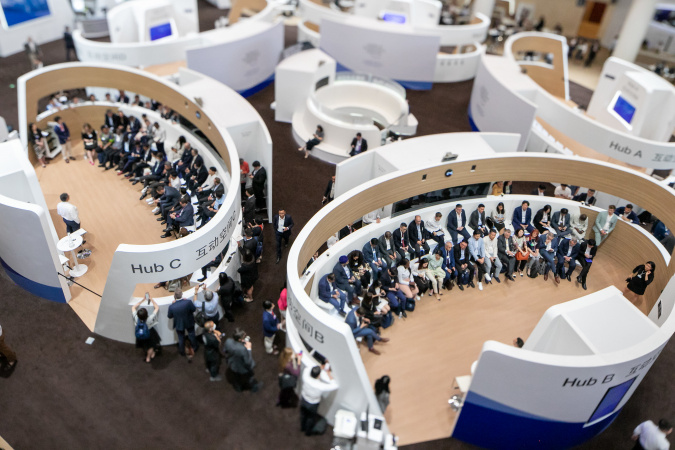Five Thought Leaders’ Tech Insights at Summer Davos
Five distinguished faculty members from the Hong Kong University of Science and Technology (HKUST) took the world stage at this year’s Summer Davos to share their tech insights, contributing their thought leadership to address pressing global challenges ranging from healthcare and well-being to economic growth.
HKUST is the only institution from Hong Kong invited to this year’s event held in Tianjin, China, from June 27 to 29, 2023. Officially known as the World Economic Forum’s 14th Annual Meeting of the New Champions, the Summer Davos was attended by over 1,500 top minds from over 90 countries and territories. Our scholars were among the speakers from renowned academic institutions around the globe, including Cornell University, Columbia University, the London School of Economics and Political Science, and the University of Tokyo, as well as leaders from other sectors, including business, government, civil society, international organizations, and innovation.
Under the event theme “Entrepreneurship: The Driving Force of the Global Economy”, our professors presented their expert views on how different innovations could better human life in various aspects.
Adapting and thriving in the AI revolution
With ChatGPT making waves around the world in just a few months, a new era of artificial intelligence (AI) technological revolution is taking center stage. At an HKUST-exclusive “Betazone” presentation session, two HKUST experts on AI and machine learning, Prof. Bert SHI and Prof. Pascale FUNG, both of the Department of Electronic and Computer Engineering, delivered a thought-provoking talk on “Hacking Machines for Humanity with Hong Kong University of Science and Technology”.
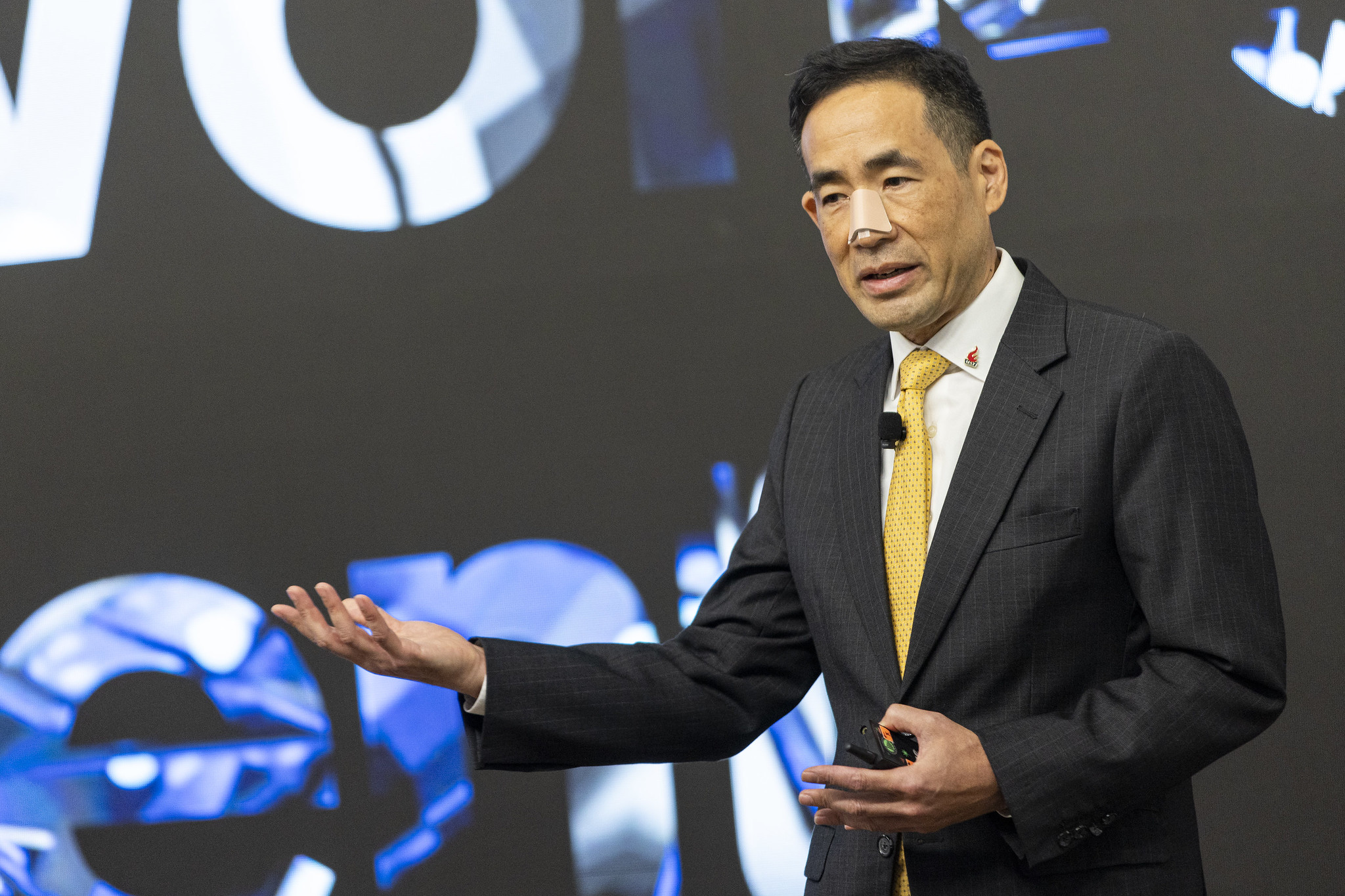
Prof. Bert Shi, Professor of the Department of Electronic and Computer Engineering, Director of Center for Aging Science, and Associate Director of HKUST-HKSI Joint Center for Sports Science and Technology
In today’s aging society, AI and robotics can play key roles in the development of more integrated and wellness-oriented solutions for better healthcare in multiple contexts.
– Prof. Bert SHI
The duo explored the vital role that robotics and AI can play in addressing the challenges of aging. They discussed several projects at HKUST addressing needs at different points along a patient’s healthcare journey, both in the hospital and at home.
In addition to the talk, Prof. Fung elaborated on her take on the opportunities and challenges of generative artificial intelligence (GenAI) and its implication for industries at a panel session entitled “Generative AI: Friend or Foe?”
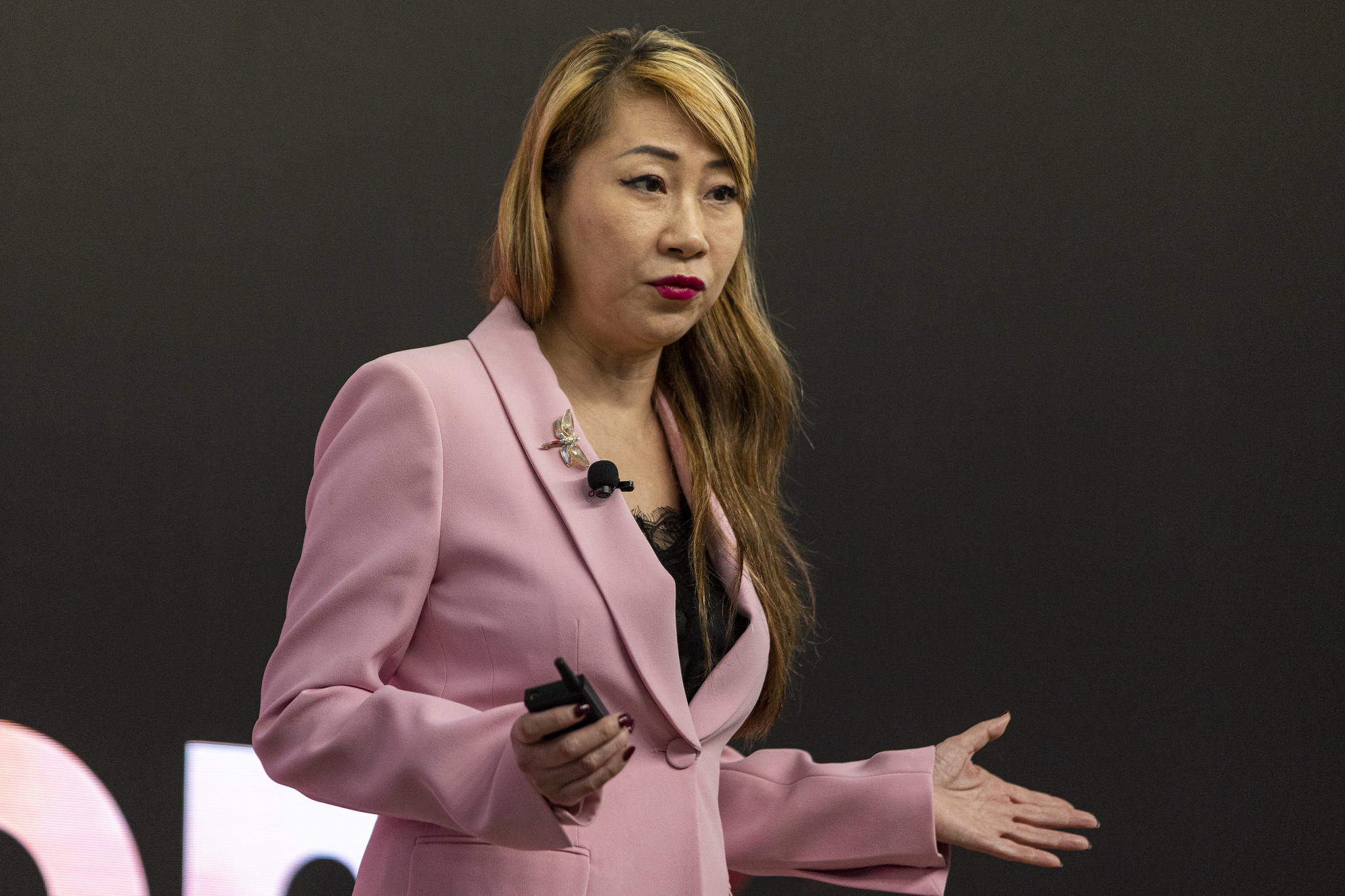
Prof. Pascale Fung, Chair Professor of the Department of Electronic and Computer Engineering and Director of Center for Artificial Intelligence Research
To enable humans to better work with machines that will replace many current skills, we need to educate humans to be more human – more humanistic, ethical, philosophical, scientific, artistic, creative and critical thinkers.
– Prof. Pascale FUNG
Unlocking the potential of metaverse
Revealed at the Summer Davos, the World Economic Forum (WEF) has identified “Metaverse for Mental Health” as one of the top 10 emerging technologies. At the Betazone session “Healing in the Digital Realm”, Prof. Pan HUI of the Division of Emerging Interdisciplinary Areas served as the moderator to lead a discussion on the integration of traditional healing practices with emerging technologies to find solutions for health and well-being in the metaverse.
A fascinating development relating to the metaverse is the emergence of digital twin cities, which are expected to save cities $280 billion globally by 2030. Speaking at the Hub session titled “Metaverse Metropolis: Navigating Digital Twin Cities”, Prof. Hui discussed how new business opportunities and technology efficiencies can be created in cities leveraging digital twin technologies.
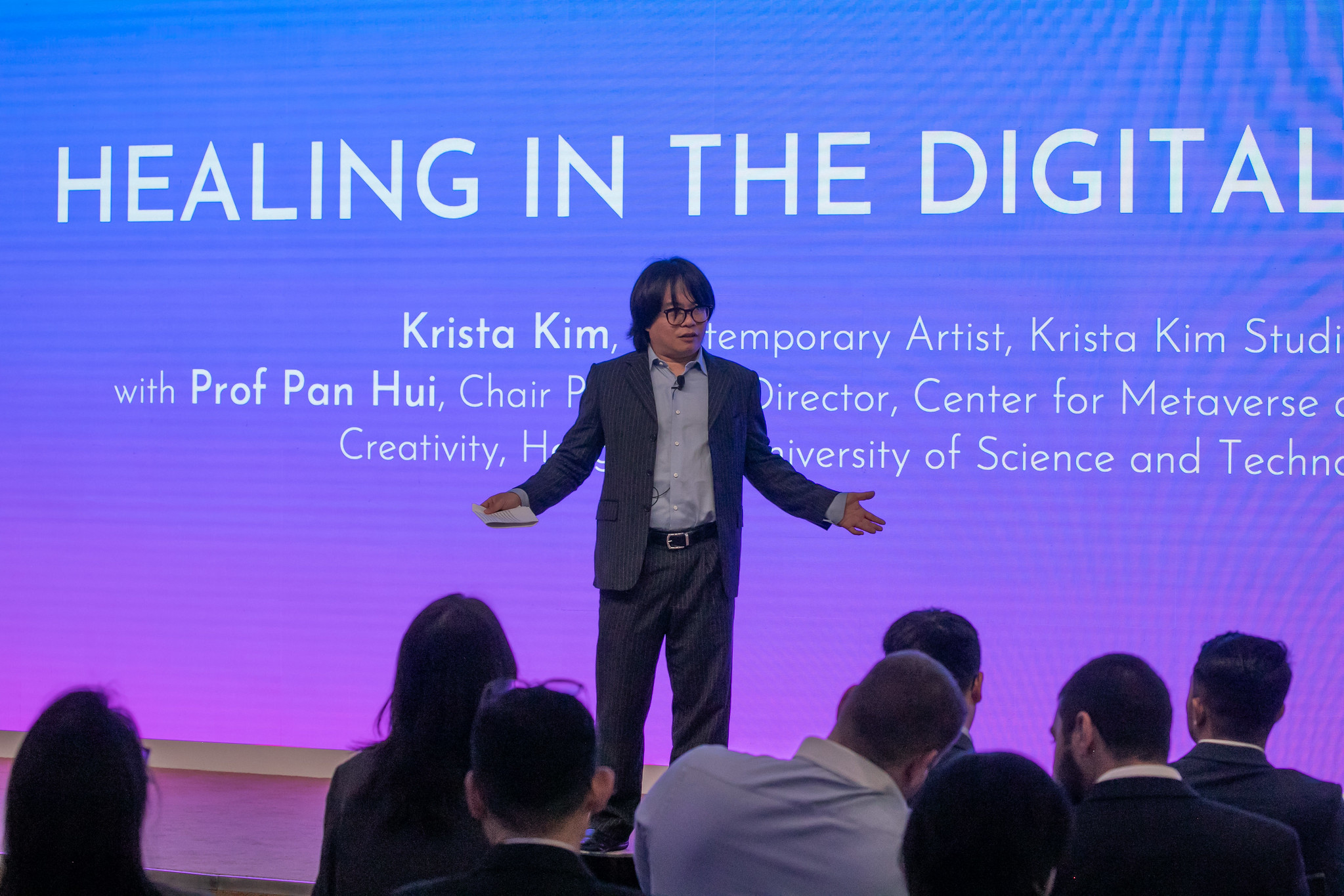
Prof. Pan Hui, Chair Professor of Computational Media and Arts and Director of the Center for Metaverse and Computational Creativity, HKUST(GZ), and Chair Professor of Emerging Interdisciplinary Areas, HKUST
Metaformation (“meta-shaping”) is the process of transforming a physical space into a hybrid physical-digital metaverse, it facilitates the cohabitation of both human and digital natives, wherein the virtual world interacts and coexists with the physical world and results in a highly engaging and seamless experience.
– Prof. Pan HUI
Solving global challenges
Small and medium enterprises (SMEs) constitute the backbone of the global economy, accounting for 90% of the world’s businesses and 70% of employment. They also contribute significantly to technological innovation. Prof. Kellee TSAI of the Division of Social Science led a discussion among officials and executives from Africa and China on how to ensure that SMEs are integrated into collaborative efforts to solve global challenges.
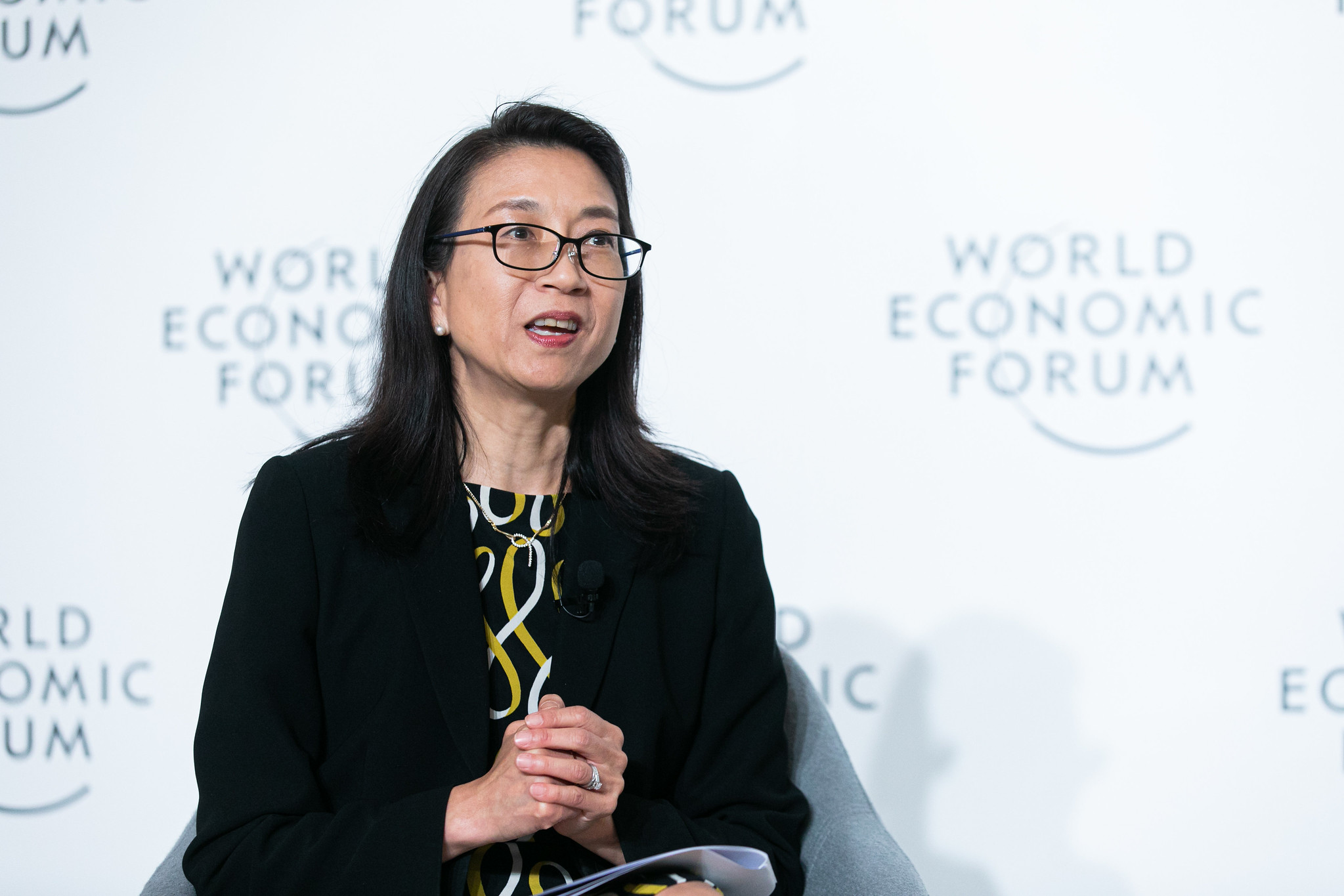
Prof. Kellee Tsai, Dean of Humanities and Social Science, Chair Professor of the Division of Social Science, and Associate Director of Center for Artificial Intelligence Research
Given that small and medium enterprises (SMEs) account for over 90% of businesses in the world, public-private sector collaboration is essential for building supportive ecosystems for their operations. The future of growth, employment, sustainability, and technological innovation depends on SMEs.
– Prof. Kellee TSAI
Separately, Prof. Angela WU Ruohao of the Department of Chemical and Biological Engineering, who co-authored the Top 10 Emerging Technologies of 2023 report, spoke at a session to discuss the impact of flexible neural electronics on our lives in the years ahead.
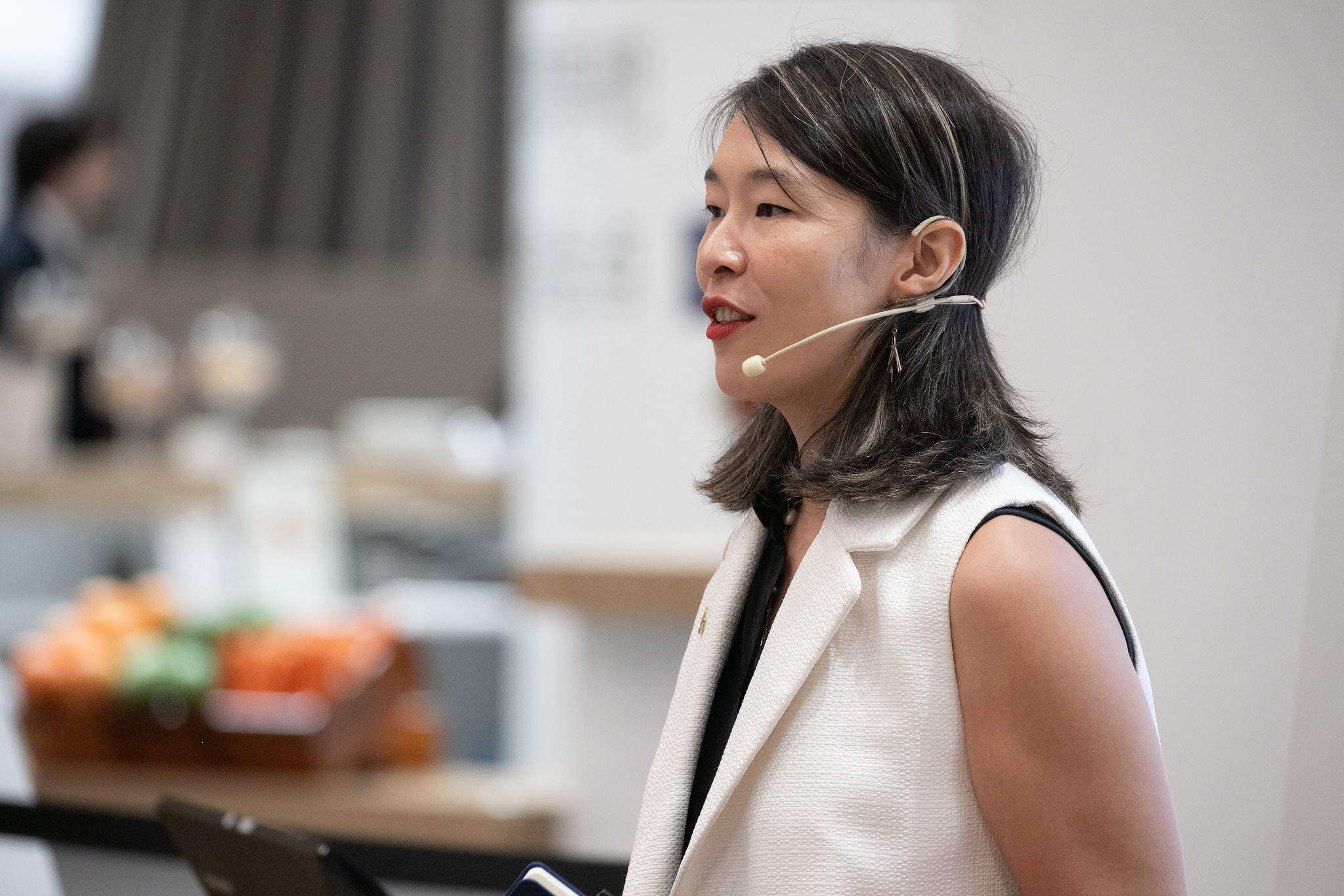
Prof. Angela Wu Ruohao, Associate Professor of the Division of Life Science and the Department of Chemical and Biological Engineering
Our report this year discusses how cutting-edge disruptive technologies such as generative AI, flexible neural electronics, spatial omics, and metaverse for mental health can rapidly propel economies, improve human health and environmental sustainability…
– Prof. Angela WU Ruohao
Although HKUST had taken part in the Summer Davos before, this year’s meeting was special to us as it marked our return to the event after the COVID-19 pandemic. Our public intellectuals will continue to contribute their thought leadership through various international platforms as the University strives to expand its impact for the betterment of humanity.
Photo credit: The World Economic Forum
(This news was originally published by the HKUST Public Affairs Office here.)
